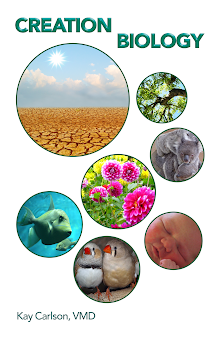Evolutionists have used what are called “pseudogenes” as proof of evolution. The pseudogenes are supposed to be broken genes that appear in multiple species that are alleged to have evolved from their ancestors. Many resemble functional genes as if there were random reproduction of the working genes and then decline of the original or duplicate due to generations of mutation and non-use. If the extra genes are broken, goes the thinking, why would they exist in various species unless they were passed along the evolutionary tree?
Fortunately, there are scientists out there who are actually studying biology. The pseudogenes are turning out to have very important functions, often concerning gene regulation. One report is by Cheetham, Faulkner, and Dinger, “Overcoming challenges and dogmas to understand the functions of pseudogenes,” Nature Reviews Genetics 21 (Dec. 17, 2019):191–201. Their article Abstract says volumes:
Pseudogenes are defined as regions of the genome that contain defective copies of genes. They exist across almost all forms of life, and in mammalian genomes are annotated in similar numbers to recognized protein-coding genes. Although often presumed to lack function, growing numbers of pseudogenes are being found to play important biological roles. In consideration of their evolutionary origins and inherent limitations in genome annotation practices, we posit that pseudogenes have been classified on a scientifically unsubstantiated basis. We reflect that a broad misunderstanding of pseudogenes, perpetuated in part by the pejorative inference of the ‘pseudogene’ label, has led to their frequent dismissal from functional assessment and exclusion from genomic analyses. With the advent of technologies that simplify the study of pseudogenes, we propose that an objective reassessment of these genomic elements will reveal valuable insights into genome function and evolution.
There is increasing realization that there are reasons that some genes resemble each other. Ironically, these particular authors are still thinking in the evolutionary mode. Don’t they realize the “pejorative inference of the ‘pseudogene’ label” of which they speak comes 100% from evolutionists? But what at the end they say is true. Their reassessments may give them the ultimate insight: that evolution is very minimal in explaining the diversity and wonder of life.
A major study called ENCODE, reported by the ENCODE Project Consortium, "An integrated encyclopedia of DNA elements in the human genome," Nature 489 (Sept. 5, 2012): 57-74, showed that much more of the DNA in our cells is being actively used than researchers ever expected. One of these scientists is Dr. Francis Collins, director of the National Institutes of Health in Bethesda, Maryland. Before, they had called most of the DNA “junk” which they assumed was from evolutionary mutations. Dr. Collins admitted he was wrong in using the term “junk” and said he would no longer refer to DNA in that way.
Now pseudogenes, which the prominent evolutionists have used as one of their prime examples as worthless, is turning out as valuable genetic material that is currently undergoing much biomedical research which may lead to cures in cancer and other diseases.
Yes, genes mutate. I’m a doctor of veterinary medicine, I know about that. But I also know that the numbers of mutation and the precision of genetics don’t add up.
When are people going to get over themselves and start thinking outside the box? When can we end the “Galileo Complex,” as Logan Gage, PhD, Chair of the Philosophy Dept. at Franciscan University of Steubenville, calls the extreme reluctance of Catholics to allow that the Lord may have touched His own Creation along the way?
Those who call Creationists "science deniers" often do not know the science themselves. They rely on the evolutionist leaders who, as we are discovering, hold back progress more than advance it.
Those who call Creationists "science deniers" often do not know the science themselves. They rely on the evolutionist leaders who, as we are discovering, hold back progress more than advance it.
It is obvious that humans are intelligent creatures who want to discover the workings of the universe, both for curiosity’s sake and to protect ourselves from harm. But we are not to be rigid, either. It takes more intelligence to reach beyond black and white, not less. It is way beyond time to do so.





